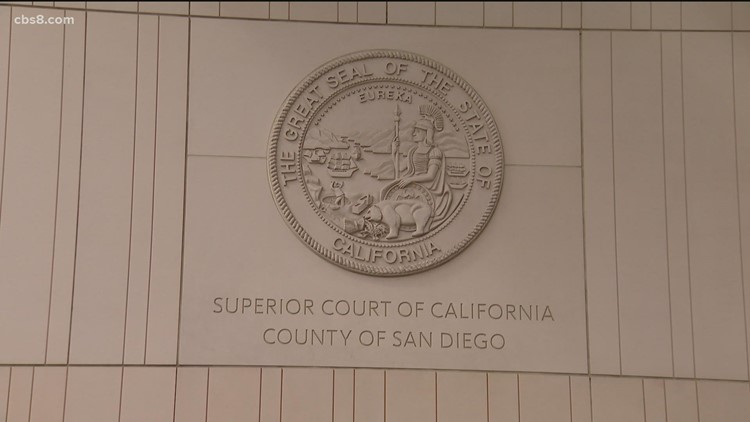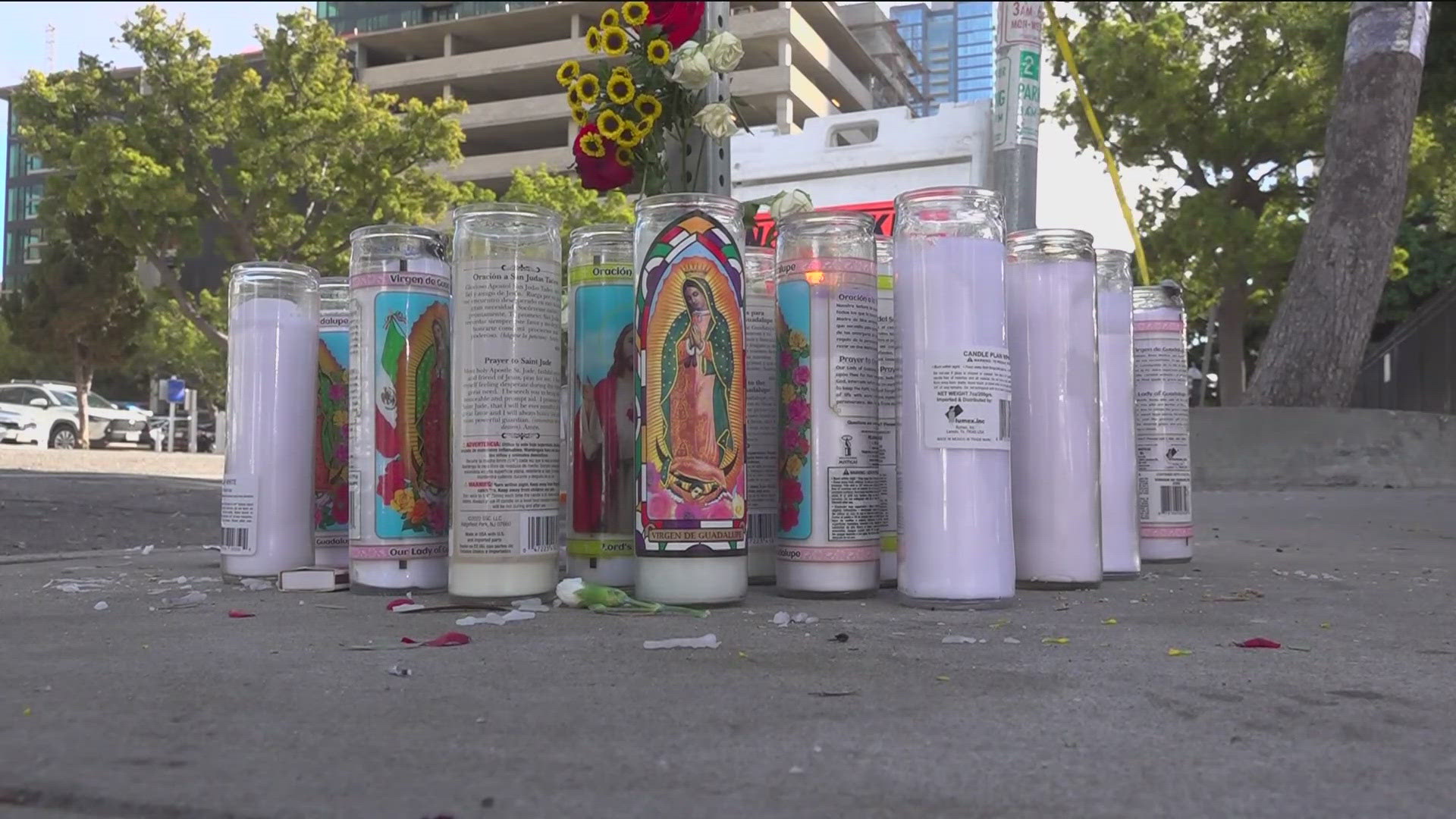SAN DIEGO — A San Diego man who said a San Diego Police Officer racially profiled him and later charged him with a misdemeanor gun violation will get his day in court.
In a February 14 ruling, the Fourth District Court of Appeals threw out a lower court's decision to dismiss a discrimination lawsuit filed by Tommy Bonds III which claimed that an officer pulled him over in January 2022 solely because of his race.
The ruling sends the case back to a trial judge.
The night of the arrest
According to his lawsuit, Bonds III claims that San Diego Police Officer Ryan Cameron saw Bonds III, a Black man, and decided to pull him. Bonds III said Officer Cameron justified the stop by claiming Bonds III's license plate was not visible.
After pulling over, Bonds III admitted that he had his registered handgun in the back of the car. Officer Cameron later arrested Bonds III on concealed firearm charges.
Included in the appellate court's ruling was the dialogue between Officer Cameron and Bonds III during the traffic stop.
- Bonds III: "You turn around like you saw two guys, like two black guys in the car, obviously. "
- Cameron: "Well, part of it, the hoodies up and stuff, just..."
- Bonds III: "I mean, it's cold outside."
- Cameron: "The climate and everything that's goin' on in this city these days, so."
- Bonds III: "Nah, that makes sense. I wasn't, I'm not tryna' play, I'm not trippin' at all, I'm just like, um..."
Bonds III then asked Cameron if he pulls over white people like that.
Cameron told him yes — his tattoos get him pulled over in East County, he said.
Cameron would admit in court later that year he used that lie to build camaraderie with people he pulls over.
When Cameron asked Bonds III if he had any guns in the car, Bonds III said yes, there was a legally registered and unloaded firearm in the back of the car. He was handcuffed, arrested and charged with a misdemeanor.
Judge Howard Shore denies writ petition
Bonds III tried to have the charges dismissed and filed a writ of mandate with the Appellate Court in February 2023, but the order was denied three months later. He filed the motion under the Racial Justice Act and represented himself.
The judge who oversaw the case, Howard Shore, set an evidentiary hearing but told everyone that day that setting the hearing, "is not an indication I believe there's been a violation by a preponderance of evidence."
Shore has recently come under fire for racist and insensitive comments outside of Bonds III's case, according to the San Diego Union-Tribune. Two chief public defenders wrote in a sworn declaration in late January that Shore has "lost judicial legitimacy and irreparably damaged confidence in his judicial integrity" after he made comments about Mexicans and Palestinians, the U-T reported.
Bond III's motion filed in Shore's courtroom relied on statistical evidence and three expert witnesses, including a retired San Diego police officer. Two of the three witnesses clearly stated racial profiling and implicit bias were evident in the stop.
Beth Mohr, a retired officer and police policy expert, said Officer Cameron's conduct was consistent with racial bias.
When testifying, Cameron said the traffic stop could not have been racially motivated "because I cannot see what race was in that vehicle," the opinion reads.
"Cameron never explained how he noticed a rear license plate violation as he approached Bonds III's car from the front or what caused him to make a U-turn and activate his overhead lights," the opinion reads.
New hearing to consider racial bias
The opinion claims that the issue for the trial court was simple: was Cameron telling the truth when he said he didn't know Bonds III was Black when he pulled him over.
Shore noted Cameron's interactions with Bonds III were "courteous and respectful," according to the released opinion.
But Shore's decision never mentioned the implied or implicit bias the expert witnesses attested to.
The Fourth District Court of Appeals released an opinion on February 14 that says the Racial Justice Act is meant to do more than just flag blatant discrimination.
"Indeed, the primary motivation for the legislation was the failure of the judicial system to afford meaningful relief to victims of unintentional but implicit bias," the opinion reads.
The opinion also says the trial court misunderstood the "most crucial element" of the Racial Justice Act.
"Cameron’s claim of ignorance, if believed, might indicate that he did not intend to discriminate based on race. But implicit bias is, by definition, unintentional and unconscious," the court documents read.
The new hearing is ordered to consider racial bias in its ruling.
It is unknown when Bonds III's case will be heard.
WATCH RELATED: Newly released police misconduct investigations show SDPD's struggle with racial discrimination



